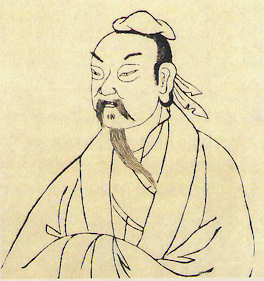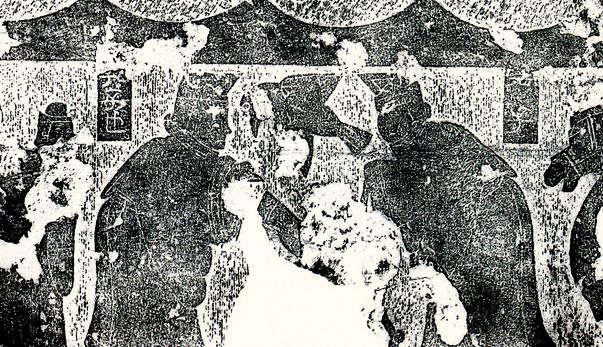
Content created: 2014-07-16
File last modified:


Zhuāngzǐ 庄子 has always been appreciated for his spunky observations and contrarian ideas, but also for his tongue-in-cheek descriptions of fictional meetings between Confucius and Lǎozǐ, in each of which Lǎozǐ, with great condescension, makes Confucius look and feel ridiculous.
In the present selection, Confucius has just returned from such a meeting and has sat in morose silence for three days before conceding that meeting Lǎozǐ (here called Lǎo Dān 老聃) was uncomfortably like meeting a dragon.
His disciple DUĀNMÙ Cì 端木赐, known by his nickname Zǐgōng 子贡, resolves to go and meet Lǎozǐ himself and perhaps try to defend his master’s honor. He plans to challenge Lǎozǐ’s reputed lack of respect for the revered monarchs of heroic antiquity, whom Confucius especially honored.

Unfortunately the timid Zǐgōng, perhaps overwhelmed to be in the presence of the famous "dragon," seems to get confused about which culture heroes should be included in his list. He mentions the “Three Kings” (Sān Wáng 三王, namely Yǔ 禹, Tāng 汤, and Wǔ 武, founders of the Xià 夏, Shāng 商, and Zhōu 周 dynasties, periods 2-4), and allows himself to get distracted by irrelevant information about them rather than using their deeds to make his point. (It’s the sort of mistake a person makes writing a termpaper —or web page— late the night before it is due.)
Lǎozǐ in this story somewhat unfairly exploits the fact that he is much older and more venerable than Zǐgōng to force the young man into respectful but confused silence. He puckishly creates confusion by pretending Zǐgōng said “Three Sovereigns” (Sān Huáng 三皇, namely Fúxī 伏羲, Shénnong 神农, and Zhùróng 祝融) rather than “Three Kings,” and throws in the Yellow Emperor (Huángdì 黄帝), who belongs in neither list. And he shocks the younger man with a blast of blatant heterodoxy when he calls a plague on all their houses. Zǐgōng is left speechless.
Here is Zhuāngzǐ’s amused account of the hypothetical conversation. (The passage occupies most of book 14, chapter 7 in standard editions. The line numbering here is introduced to facilitate referencing in class discussion. The translation is freely modified from Legge, 1891.)
Return to top.
Go to English only version.